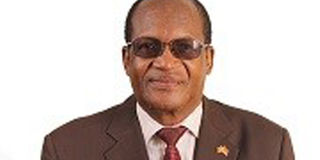Museveni should turn focus on internal issues

Mr Baligidde, a former diplomat, is a lecturer at UMU-Nkozi. COURTESY PHOTO
What you need to know:
- President Museveni’s admirers describe him as “a realist”; he doesn’t seem to care when his detractors also portray him as Machiavellian.
- As a self-appointed Museveni historian, me thinks he is a milito-politician.
- His political toolkit contains the brunt weapon of the socialist-leaning ideology of pan-Africanism.
When former president George Bush was asked what principles would guide American foreign policy under his administration, he replied: “A question of what would be in the best interests of the United States”. Heads of State are influenced by different perspectives which shape the policy decisions they make. Realists contend that nation-states focus on their ‘national interests’. The realist perspective is the centrality of power; where power means the ability to influence the behaviour of others.
President Museveni’s admirers describe him as “a realist”; he doesn’t seem to care when his detractors also portray him as Machiavellian. As a self-appointed Museveni historian, me thinks he is a milito-politician. His political toolkit contains the brunt weapon of the socialist-leaning ideology of pan-Africanism.
At a meeting seeking support for the bush war, which took place in Germany in the early 80s, he became very annoyed when asked whether as a self-confessed Marxist, he would introduce socialist policies if he took power. His anger has been absolved by the capitalist methods with which he has steered the economy towards foreign capital and particularly Chinese investment.
What he perceives as the national interest is probably not as ordinary mortals understand it. His is underpinned by a unique ideology: A mixture of interwoven threads linking capitalism to the socialist tradition of ‘democratic centralism’ he is struggling to entrench.
I was on a foreign policy review best practices 3-man Delegation led by the then Foreign Affairs permanent secretary James Mugume to Beijing in 2012. I had known the Peoples Republic of China to be Communist, but what I saw was anything but that: Capitalist opulence, ostentatious consumption such as the fast cars Ferraris and Lamborghini, and Western world symbols of capitalism, among others. We met several senior Chinese officials at the Ministry of Foreign Affairs.
When we met vice minister for Foreign Affairs Zhai Jun, he applauded the idea of a retired diplomat turned-academic being on a government delegation. Having attracted his admiration for public-private partnerships, which had been taken to a new level that had necessitated the cross-fertilisation and elsewhere enabled government, business and industry to invest in higher education for national development, I asked Prof Zhai to explain the incongruences between communist rhetoric and the reality of what we saw of life in China’s capital; whereupon he replied that what we had seen was “Communism with Chinese characters” or was it no more of capitalism with Chinese characters? Whether realist, idealist or liberal Museveni seems to have borrowed from the Chinese Model.
This time, it is the Chinese leader taking the former’s path: Removal of term limits. Gen Museveni is passionate about military doctrine and military history from which his more enduring strategies seem to be contrived. Inherent in his concept of security is the notion of threat: Anything that endangers his political power base; indigenisation of the economy plays second fiddle. When the two threads get entangled, Machiavellian instincts are aroused; he uses them with surgical precision. His foreign policy orientation syncs well with international and regional responsibility, but portrays him as a latter-day Napoleon Bonaparte. When escalation of commitment to solving other countries’ problems, but no sustainable solutions materialise, the risk of appearing to be an incompetent hegemony becomes a threat to what Bush called ‘best national interests’.
President Museveni has done a lot in the international and regional domains, but should now pay more attention to internal priorities. He probably does not need to be lectured to on these matters after 32 years as the principal consumer of political intelligence, who knows better and is accountable for whatever may have gone wrong? Whether in pursuit of its national interest or not, Uganda seeks absolute gains; relative gains shouldn’t be reduced to mathematical calculation. At the end of the milito-political equations, there are no easy mathematical solutions to domestic politics and international human relations.
Mr Baligidde, a former diplomat, is a lecturer at UMU-Nkozi




